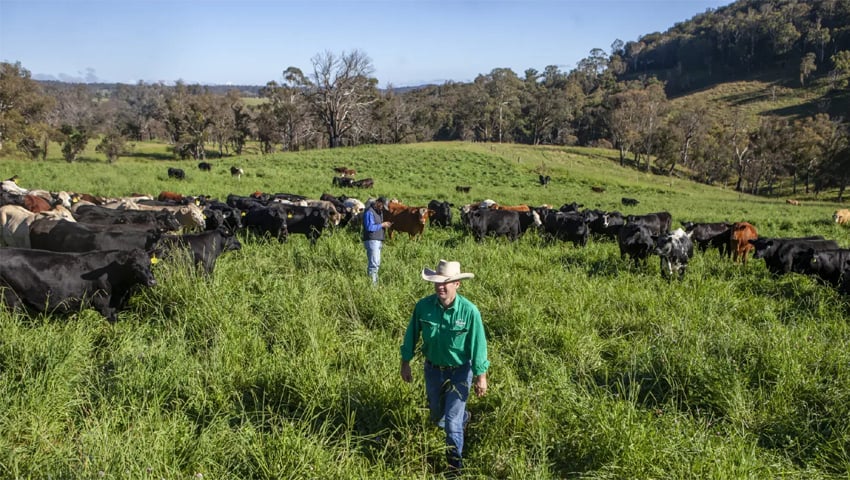Soil security underpins ecological security and global stability – and to support farmers in their regenerative transition the Australian website Soils for Life offers up a broad array of regenerative farming case studies.
One such study features Wilmot, in the New England region of NSW, which is owned by Alasdair Macleod’s Macdoch Ag Group.
Having seen the devastating impact of the Millennium Drought, Macleod was determined to reduce the high financial risk of conventional grazing.
He investigated alternative approaches concluding that resilience through cycles might be improved by adopting time controlled grazing (a regenerative farming approach).
The purchase of Wilmot, in the New England region of NSW, provided an opportunity to test the theory. While the property had favourable soils for a wide range of agricultural crops and pastures, they had become compacted under the conventional farming practices of potato cropping and set stocking of cattle.
Macleod worked closely with on-site manager Stuart Austin and others to develop innovative strategies to manage the cattle farming enterprise.
Macleod said, “As a pure financial investor you’re not making a very good financial investment if the way you’re farming is buggering up your main asset, which is your farm. You’re going to be thinking about how you can farm it in such a way that you’re not just maintaining the efficacy of your asset, but you’re thinking about how you improve it.”
The combination of Alasdair’s strategic oversight and Stuart’s on-the-ground know-how resulted in a strong partnership and a shared vision.
Wilmot adopted innovative methods and embraced technology to better manage its grazing enterprise, including the early adoption of cloud based grazing management software, ‘Maia Grazing’.
After more than half of Wilmot burnt during the disastrous bushfire season of 2019/20, the pastures recovered, producing 6 months of feed within 6 weeks of the rain. This degree of resilience reduces the pain during challenging times and allows the management team to work constructively and to plan for the longer term with confidence.
Wilmot demonstrates the potential of well-managed grazing operations to smooth-out the peaks and troughs commonly associated with conventional agriculture and to offer more long term security to owners, investors, managers and staff.
Stuart Austin, General Manager at Wilmot, said, “There’s nowhere near the production risk in the business, so there’s nowhere near the stress level. Any of that stress that’s created by hard times is minimised.”
The time controlled grazing method has increased soil resilience and minimised the risk of soil loss and land degradation. This has resulted in less bare soil and more consistently available pasture, enabling Wilmot to finish their cattle as 100% grass-fed beef. The demonstrable improvements to soil condition have also allowed Wilmot to enter the carbon market, recently making a large sale of carbon credits to Microsoft.
The increased resilience of the landscape has resulted in reliable and resilient production and revenue. As a consequence, Alasdair, Stuart and his family have found great joy and security in restoring Wilmot’s spectacular landscape and are very optimistic about their farming futures.
Read the Soils for Life case studies
Photo credit: Mike Terry
